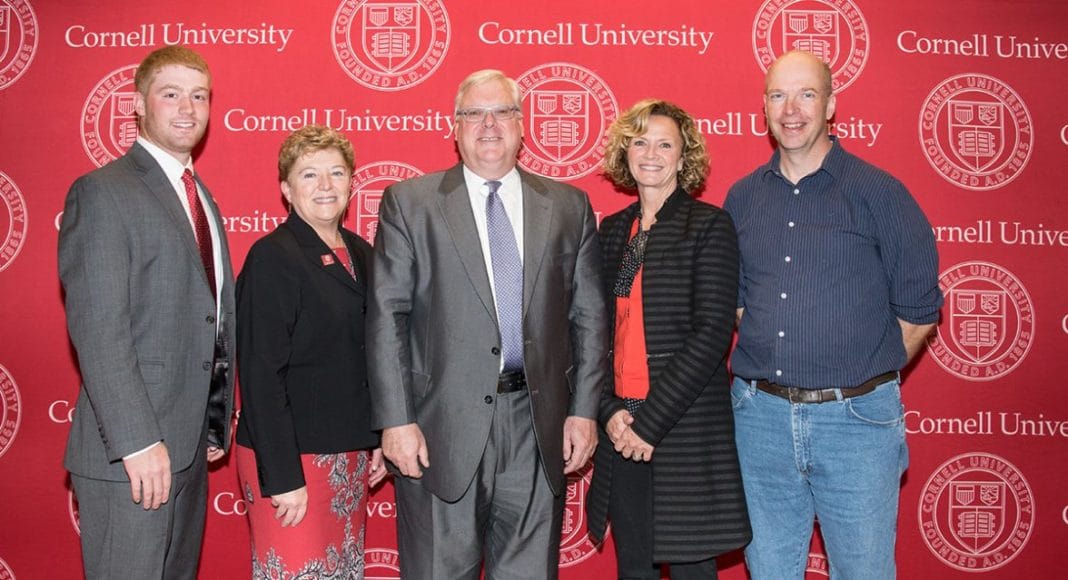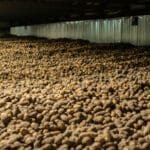Cornell University’s long-standing battle against a major potato pest is getting a $1.2 million boost in new New York state funding.
The destructiveness of the golden nematode, currently quarantined to eight New York counties, threatens the state’s annual $73 million potato crop. For decades, a partnership between Cornell and government scientists has kept this persistent subterranean threat in check.
A grant announced Oct. 14 will update facilities at the College of Agriculture and Life Sciences (CALS) as Cornell ramps up eradication efforts and the breeding of new potato varieties resistant to the golden nematode. The Federal Golden Nematode Lab at Cornell is the only research program in North America with expertise in the biology, resistance breeding and management of potato-cyst nematodes.
The golden nematode is so destructive that it can lead to total crop failure if not controlled, according to Walter DeJong, associate professor in the Plant Breeding and Genetics Section of the School of Integrative Plant Science.
The microscopic worm feeds on the roots of potatoes and other crops, dramatically reducing yields.
“If nematode levels are high enough, farmers harvest less than they plant. It’s remarkably devastating,” DeJong said.
Unlike many soil-borne pests that can be controlled by crop rotation, the golden nematode can reside in soil for up to 30 years. Fumigation attempts used until the 1970s had limited success and proved harmful to the environment.
Joint efforts undertaken by Cornell, the U.S. Department of Agriculture’s (USDA) Agricultural Research Service and Animal and Plant Health Inspection Service, and the New York Department of Agriculture and Markets have contained the pest to about 6,000 acres in New York. But the cysts can be spread in soil on farming equipment, attached to potatoes or other agricultural commodities, and by natural forces like water and wind, making containment efforts crucial.
Cornell research into the golden nematode has been done out of a building erected at about the same time as the U.S. Congress passed the Golden Nematode Eradication Act in 1948. The new state funding will update equipment as the facility moves to the Dimock Laboratory on Tower Road. A new wastewater sterilization system, enhanced features to ensure isolation and additional growth chambers will add to the scientific arsenal mounted against the resilient microorganism.
“These pests pose such serious threats and are so hard to control that all government have to keep it from being established,” DeJong said. “Containment is the critical issue.”
If containment failed, DeJong said trading partners would almost assuredly establish embargoes to prevent transport of any crop that contains soils to prevent contaminated soil from moving across borders. The consequences would affect more than just potatoes: turnips, radishes, carrots, turf grass, nursery crops and any other agricultural commodity that comes in contact with soil would be barred from trade, he said.
USDA has been leading efforts to monitor and test soil and develop the on-farm management strategies needed to keep the golden nematode contained. Additionally, Cornell has been breeding golden-nematode-resistant potato cultivars, producing 22 such varieties since the 1960s. The new facility is expected to speed development of commercially viable resistant cultivars to meet the needs of the state’s growers.
Source: Cornell University











